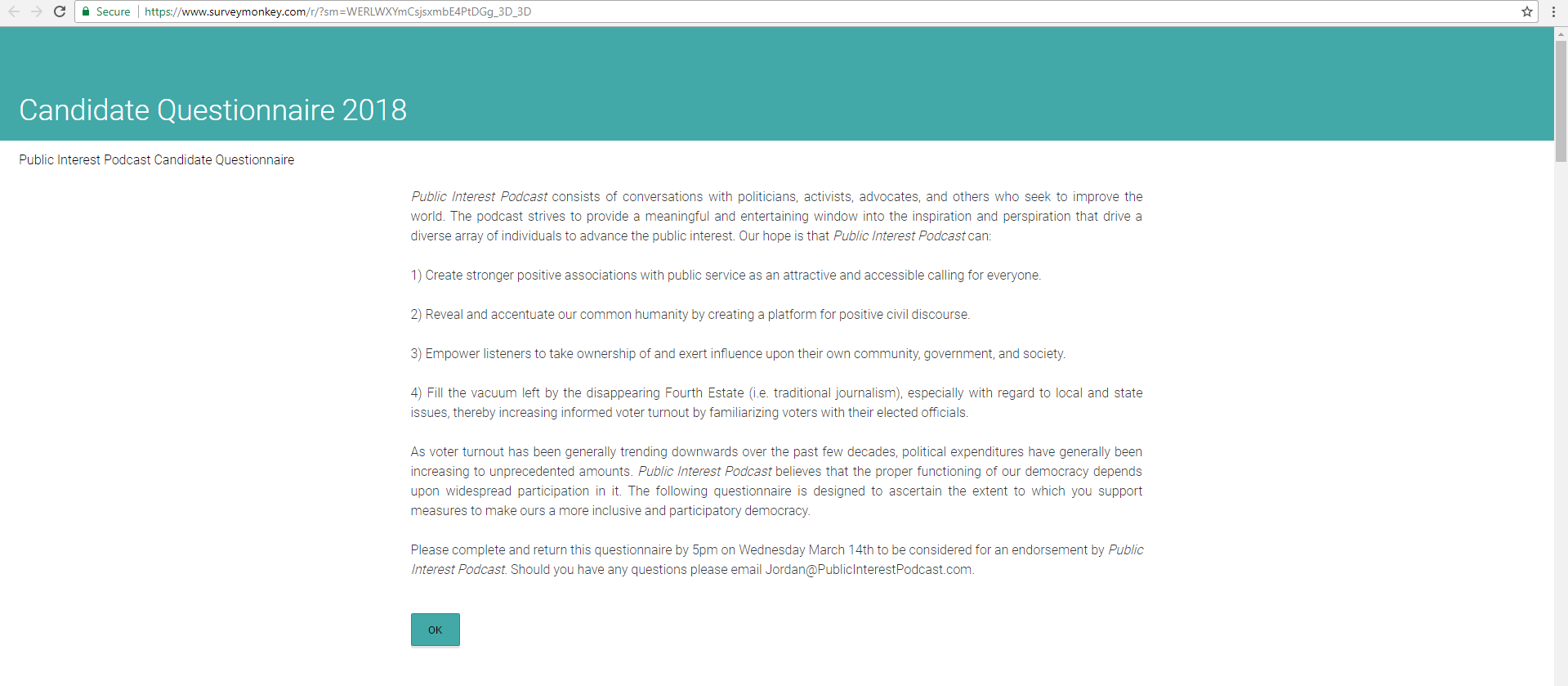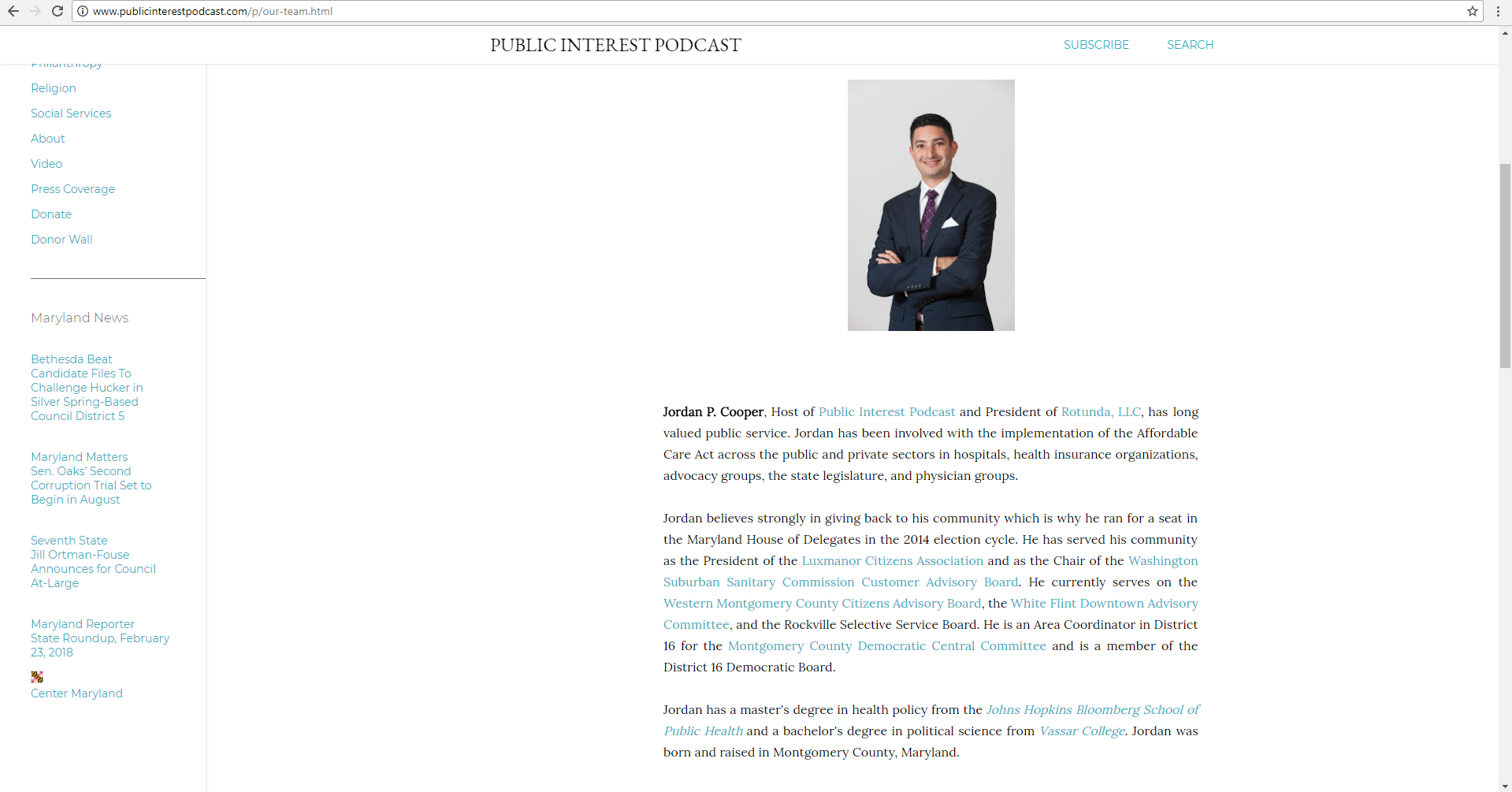By Adam Pagnucco.
It’s questionnaire season, and candidates are getting absolutely deluged by them. But one questionnaire stands out. That’s because it was drafted and sent out by… a candidate.
On Saturday, the email below was sent to candidates asking them to fill out a questionnaire from the “Public Interest Podcast” to obtain an endorsement. The contact was Jordan@PublicInterestPodcast.com.
We reprint the first page of the survey below. Note the intent of the organization to “Fill the vacuum left by the disappearing Fourth Estate (i.e. traditional journalism), especially with regard to local and state issues, thereby increasing informed voter turnout by familiarizing voters with their elected officials.” The full survey can be found here.
Public Interest Podcast is hosted by Jordan Cooper, who is a candidate for Delegate in District 16 and also a candidate for the Montgomery County Democratic Central Committee (MCDCC). We reprint the Our Team section of Public Interest Podcast’s website below to identify its host as Cooper.
And so we have something extremely rare in MoCo politics: a candidate who drafts a questionnaire for other candidates with an endorsement on the line.
Aside for running for Delegate, Cooper is known for one more thing: attacking MCDCC. He has criticized them for “corruption” in part because some members get appointed to the committee and then vote to appoint themselves to the state legislature. In other words, he alleges a conflict of interest in roles.
That seems to be going around, yeah?



